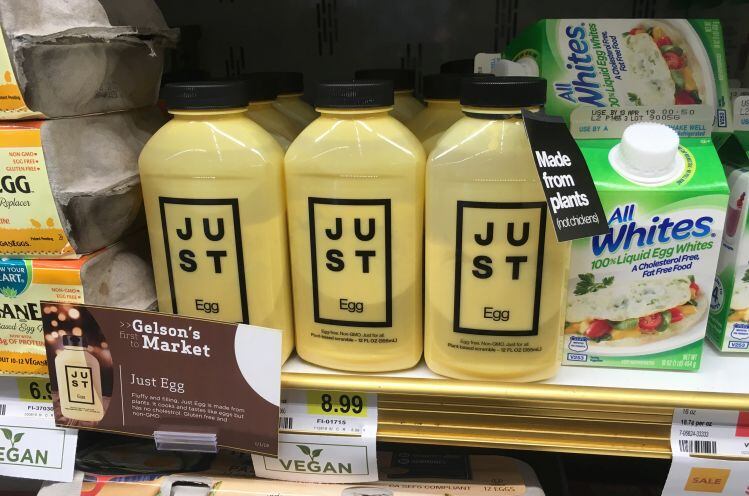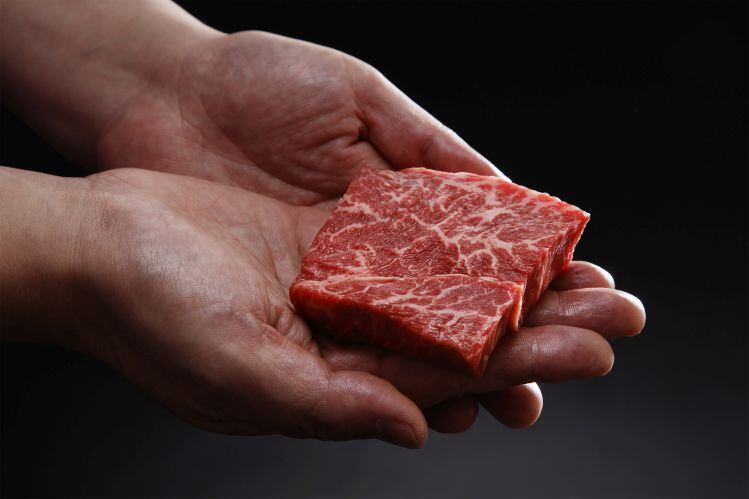Speaking to FoodNavigator-USA as Just Egg began hitting shelves in Safeway and Albertsons stores nationwide following deals with HyVee, Savemart, ShopRite, Wegmans, Giant, Winn Dixie and others, Tetrick said IRI and SPINS point of sale data* showed that, “When we compete with liquid eggs, we’re winning. We’re doing more dollars per store per week than liquid eggs. I thought that might happen eventually, but not within the first three months of being in retail."
He added: “In Safeway, we’re merchandised in the egg set, and in other retailers we’re in the alternative protein set, or in both locations, but we’ve seen that the product is expanding the category significantly more than we thought.
“I thought there would be more cannibalization, where people would choose us instead of shelled eggs, but what’s happening is that people that like eggs are buying it, in addition to new people coming into the [egg] category because they are vegan or vegetarian, or into health and wellness, or care about the environment or animal welfare, so it’s expanding the whole category more than we thought.
“We’ve just shipped what’s equivalent to our three millioneth egg.”
On the foodservice side, he said, Just Inc is setting up an infrastructure with national distributors and group purchasing organizations such as Sysco, PFG, Unipro and Aramark, with JUST Egg now sold “in a number of universities, Disneyland and Disneyworld, high end breakfast places, and individual restaurants in major cities across the country.
“In most cases our partners emphasize the JUST Egg brand on the menu, ‘made from plants not chickens,’ and some are also saying things like, ‘Make it Just’ as an easy substitution.”
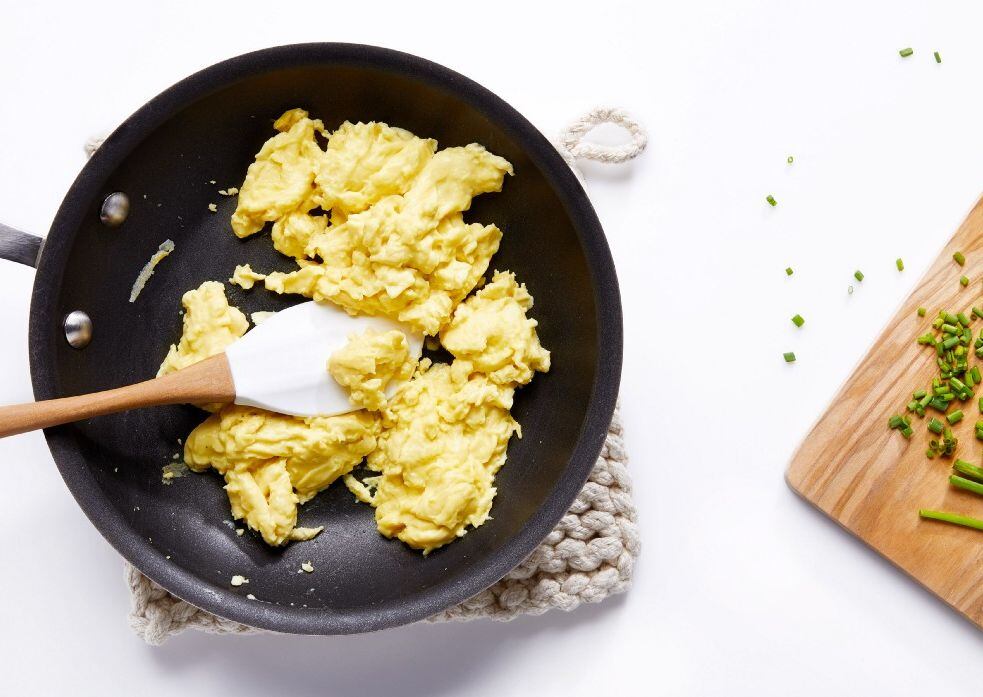
One of the first - but most challenging - products Just Inc founder Josh Tetrick started working on at the San Francisco-based firm (formerly Hampton Creek), four years ago, JUST Egg is made from water, mung bean protein isolate, canola oil, gums, and seasonings, and is designed to look, cook, and taste, just like scrambled egg.
Ingredients, Just Egg: Water, mung bean protein isolate, expeller-pressed canola oil, contains less than 2% of calcium citrate, enzyme, gellan gum, natural carrot extractives (color), natural flavors, natural turmeric extractives (color), onion puree, salt, soy lecithin, sugar, tetrasodium pyrophosphate, preservative (nisin, potassium sorbate).
We’ll probably have 10-15 primary processing locations strategically located around the world
That said, Tetrick acknowledged that he is not yet at a point where JUST Egg production costs are lower than they are for conventional eggs, and says constructing efficient mung bean processing facilities around the globe, and finding a ready market for byproducts such as starch will be key to this.
“The upstream side is our world,” he said. “We’ve identified sources of mung bean that work [for our products] in Asia and Africa and we’re testing sources elsewhere too. Today the beans are processed – so they are milled and the protein is extracted - in Europe and Canada, and then we sell that powder in 50lb bags – the equivalent of about 3,600 eggs – to partners such as Eurovo in Europe [which will add other ingredients such as oil, gums and seasonings, and then distribute JUST Egg to foodservice and retail partners].
“We’ll probably have 10-15 primary processing locations strategically located around the world, one in Canada, one in western Europe, a handful in Asia Pacific, one in Latin America and so on, and these could be joint ventures we have with other companies, these could be manufacturers we work with, or they could be facilities that we own.
“It’s what Coca-Cola has been doing for years. They produce the concentrate and supply it to bottling partners, and that’s the way they scaled so quickly.”
‘We need to really develop that mung bean starch market’
He added: “In Asia Pacific, it’s 14-16 cents an egg, so our objective in the next handful of years is to get below that cost of production, and that will require significant scale on the upstream side, and will require that we find a smart market for the [mung bean protein] co-product, in this case starch. So it’s got to be cleaned up and dried and then it can be used in noodles, and as a filler in other foods.
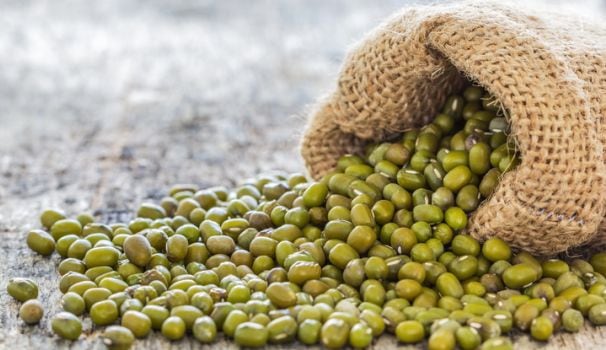
“We’ve spent relatively little energy on this so far, but if we want to take a big step to getting below the cost of production for the egg, we need to really develop that mung bean starch market.”
But downstream, he said, “We can plug into an existing infrastructure with companies such as Eurovo and PHW [German poultry specialist with which Tetrick has just struck a deal to distribute JUST Egg in some European markets] and let it loose, and we’re going to repeat that same formula in China, Latin America, Australia, the Middle East and eventually in the US.
“This allows us to focus on what we do best: continuing to improve the quality of the product. If we can lock down this infrastructure we can scale in a much lighterweight, smarter way.
“The alliance with Eurovo is likely up and running before the end of the year.”
Hybrid protein products could combine cell-cultured chicken and plant-based protein (mung bean isolate)
Mung bean protein isolate has potential in a broad range of food applications from ice cream to sauces, according to a GRAS determination from Just Inc sent to the FDA in December 2016.
Right now, however, Tetrick says work on the mung bean protein is focused on eggs and meat. “There are opportunities in the world of cultured meat, because the first products don’t have to be 100% chicken, for example, they could include some plant-based protein.”
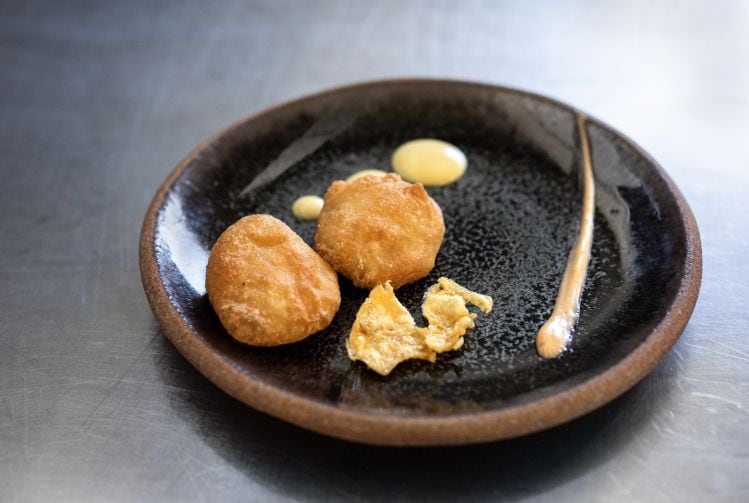
Speaking at the American Food Innovate Summit in Chicago last week, Just Inc VP product development, Chris Jones, said: “This [mung bean] protein creates extremely unique textures. Through extrusion we’re able to create a base that texturally replicates chicken and then we’re able to add our cultured chicken to this product.
"When you combine the two together, ‘I call it my eight-year-old test’ – when an eight-year-old likes your chicken nugget, you know you’re in good shape. The flavors and textures are outstanding.”
When will Just launch cell cultured meat?
Asked about his well-publicized plan to launch cell-cultured chicken by the end of 2018, Tetrick said: “We were in a position to release it before the end of the year, we had restaurant partners locked down and the product was ready, but regulatory was the limiting step.
“There are a handful of countries around the world that have an interest in being first and we’re in a really positive dialog with them, so whether it’s this quarter or sometime this year, we’re confident we’ll have a regulatory environment to launch this product in, and the moment that happens we’ll be ready to launch and scale it up.”
Asked about the economics of producing meaningful quantities of cell-cultured meat, he added: “The most significant technical challenge is getting media that’s cost effective enough to feed the cells in a cost effective way, and we have made fairly significant process in doing that, but it will be a long road.”
He added: “You can produce ground meats [from cell-cultures] without significant scaffolding technology now, and we’ve seen some advances here, but we still have a lot more work to do.”
‘Why would a chef put this on the menu? It’s very simple, it’s one of kind, no one has served this before’
Speaking about the Just Chicken launch at the American Food Innovate Summit, Jones said: “It’s going to be a very small launch. We’re looking at tasting menus. Our first restaurant will be a very high-end restaurant [outside the US].
"For me, the question to answer is, Why would a chef put this on the menu? It’s very simple, it’s one of kind, no one has served this before.”
*Source:
- Grocery channel: IRI, Total US Food, Egg Substitutes category, Last 4 Weeks Ending 12/30/2018; Dollars Per Store Per Week, All items with ACV over 5
- Natural channel: SPINS Natural Channel, Refrigerated Liquid Egg category, Last 4 Weeks Ending 12/2/2018; Items with ACV >5

